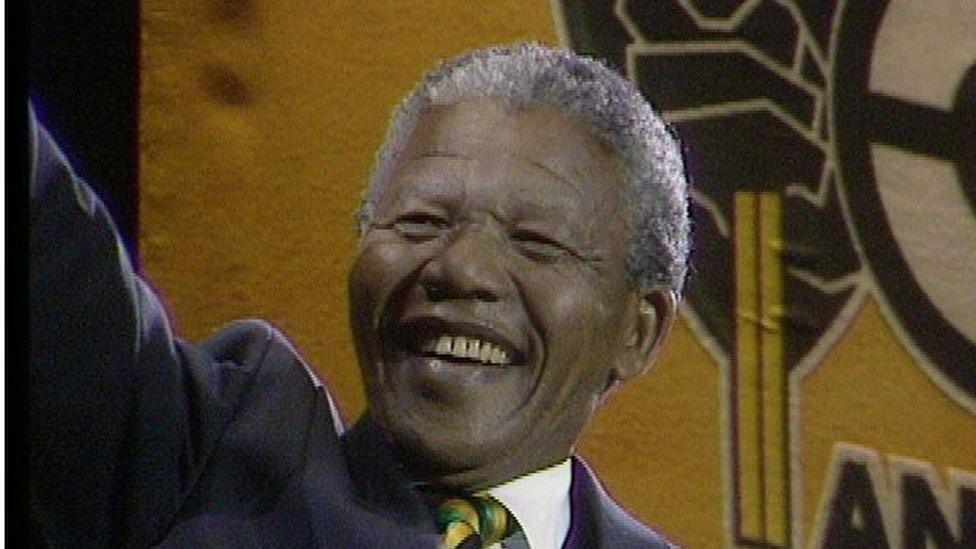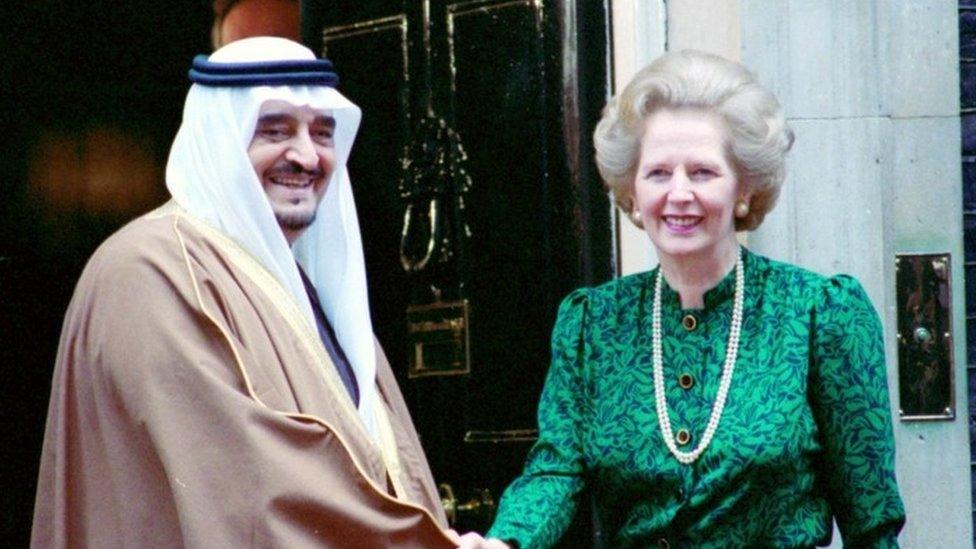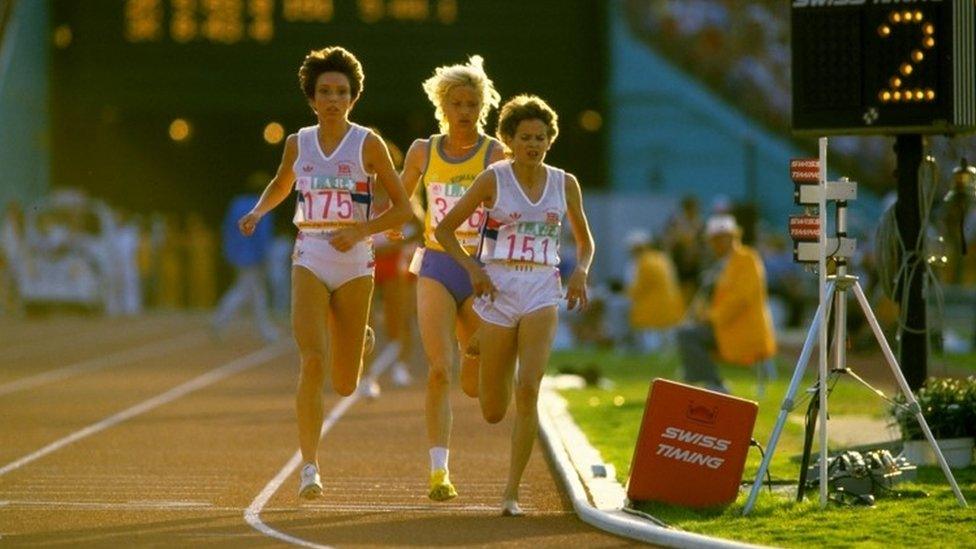Foreign Office papers: Nelson Mandela and the 'Gay Gordons'
- Published

The British government's policy to South Africa in the 1980s was at times controversial
The latest release of previously secret Foreign Office papers from the 1980s reveals a humorous footnote to the British government's ambivalent attitude towards Nelson Mandela.
Then in prison in South Africa, Nelson Mandela was widely regarded as the hero of the struggle to end apartheid and white minority rule.
But in Prime Minister Margaret Thatcher's mind he was also associated with communism and terrorism through his leadership of the ANC.
Foreign Office officials did not know how to react when, in November 1984, they were asked by the Ministry of Defence (MoD) if there would be any objection to the Gordon Highlanders (whose regimental nickname was the Gay Gordons) taking part in a ceremony in which the future South African president was to be given the freedom of the city of Aberdeen.
'Performing and prancing'
An official, Miss Adams, wrote: "Music, colour and pageantry is generally supplied on such occasions by the Gordon Highlanders, who are based in the city.
"MoD have asked whether there would be any objection to the Gay Gordons performing and prancing on this occasion too.
"I recommend that we do not object."
Another official replied, by adding to the typed note in pen: "The association of a Scottish band of the British army with the ceremony would certainly attract comment in SA [South Africa]. All in all, it seems unwise."
But Miss Adams stands her ground, at least to an extent.
She wrote "MoD are having cold feet.
"I recommend that we tell MoD we have no objection and leave them to decide."
The records do not reveal the outcome, but the BBC believes, based on consulting local records in Aberdeen, that the Gordon Highlanders did not take part.
It may not be the most glorious little moment in the Foreign Office's history.
- Published24 August 2016

- Published24 August 2016
